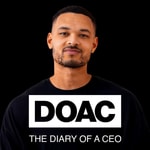ISF Podcast – Details, episodes & analysis
Podcast details
Technical and general information from the podcast's RSS feed.

ISF Podcast
Information Security Forum Podcast
Frequency: 1 episode/10d. Total Eps: 311

Recent rankings
Latest chart positions across Apple Podcasts and Spotify rankings.
Apple Podcasts
🇬🇧 Great Britain - management
31/07/2025#80🇬🇧 Great Britain - management
20/07/2025#68🇫🇷 France - management
18/07/2025#66🇫🇷 France - management
17/07/2025#43🇫🇷 France - management
16/07/2025#31🇨🇦 Canada - management
13/07/2025#86🇨🇦 Canada - management
12/07/2025#60🇬🇧 Great Britain - management
11/07/2025#94🇨🇦 Canada - management
21/06/2025#56🇬🇧 Great Britain - management
11/06/2025#72
Spotify
No recent rankings available
Shared links between episodes and podcasts
Links found in episode descriptions and other podcasts that share them.
See all- https://www.mogawdat.com/
436 shares
- https://www.securityforum.org/
248 shares
- https://simonsinek.com/
161 shares
RSS feed quality and score
Technical evaluation of the podcast's RSS feed quality and structure.
See allScore global : 52%
Publication history
Monthly episode publishing history over the past years.
S29 Ep2: Steve Durbin & Nick Witchell - Rethinking Technology Governance in a Fragmented Policy Landscape
Season 29 · Episode 2
mardi 10 septembre 2024 • Duration 23:41
Key Takeaways:
1. Organisations cannot abdicate responsibility for data security, even when outsourcing to third parties. They need strong incident response plans and ongoing assessment of third-party security capabilities.
2. In terms of any country’s political agenda on cybersecurity, AI regulation is often overshadowed by other issues.
3. Few parliamentarians and ministers come from a security background, which is one reason why it’s critical to provide guidance and insight to them.
4. A more thoughtful and funded approach to security would benefit society, considering the potential impact on people’s lives and the need for effective incident response.
Tune in to hear more about:
1. Accountability and responsibility in cybersecurity (1:59)
2. Role of cybersecurity centers and national institutions (5:13)
3. Government and political involvement in cybersecurity (8:29)
4. Public awareness and the ISF’s role (12:21)
5. Risk management and security investment (16:32)
6. Concerns about technology implementation (20:14)
Standout Quotes:
1. “We (at the ISF) don't want to be one of those organisations that's constantly barracking people and complaining. We want to be holding true to some of our founding principles, which is about providing best advice, providing some of the best tools, providing some of the best insights that we gather from our own team and also from our member community. But we do need to make more noise about that, because people desperately need to understand some of the implications, and indeed, very much more importantly, what they can actually practically do about it.” - Steve Durbin
2. “There is no one size fits all. That's the other thing about this. You have to have it in line with your business direction, your size, your maturity, all of those sorts of things. Very often people ask me for blueprints or, what does good look like? And my answer is always the same: it varies depending on your stage of maturity and your willingness to spend, and how important your data is to you.” - Steve Durbin
Mentioned in this episode:
Read the transcript of this episode
Subscribe to the ISF Podcast wherever you listen to podcasts
Connect with us on LinkedIn and Twitter
From the Information Security Forum, the leading authority on cyber, information security, and risk management.
S29 Ep1: Jannis Kallinikos - Redefining Data to Reinvent the Market Economy
Season 29 · Episode 1
mardi 3 septembre 2024 • Duration 30:33
Key Takeaways:
1. Kallinikos argues that data are not just statistical entities, but cultural entities that convey aspects of our world and reality.
2. Data are cultural records, not just statistical entities, and are fundamental to economic and social transformation.
2. Durbin and Kallinikos discuss concerns about data-driven perspectives reinforcing narrow worldviews.
3. Data regulation needs to reflect data’s interactive and morphing nature and serves to protect society from greedy companies.
4. Kallinikos warns that politics has become instinct-based, with little time for reflection.
Tune in to hear more about:
1. Data’s role in society, economy, and transformation (0:00)
2. Data’s impact on society, culture, and individual perspectives, with a focus on regulation and balance (7:10)
3. Data as a living entity, challenges for security professionals, and need for education (18:01)
4. Data’s impact on society and politics, with a focus on education and government’s role in protecting data (23:15)
Standout Quotes:
1. “Data are cultural elements and not statistical entities. It makes a whole lot of difference. By cultural entities, we mean that they are records by which we represent our world. and we act upon the world. We use them to produce, we use them to interact, we use them to communicate. In this respect, data are cultural records, once again, and not statistical entities or entities like those ones that contemporary data science debates.“ - Jannis Kallinikos
2. “Think how many things we can do that were out of reach before these beasts and these technologies and the data we produce in the facilities that they prepare for us, how many things we can do that were not virtually possible before. So there is a positive side to it. But as you English say, there is no free lunch in life. And this applies here. We win a lot. But there are also important things that we lose.“ - Jannis Kallinikos
3. “But these are difficult discussions to have in politics. Because they require a little bit of reflection, a step back, a little bit of time. Politics, for good or bad, has become very instinct based over the last three or four decades. Instinct based, more to react, target, and produce reactions of a particular type that are mostly emotional or instinctual.“ - Jannis Kallinikos
Mentioned in this episode:
- Times Higher Education: We need a social science of data by Cristina Alaimo and Jannis Kallinikos
- ISF Analyst Insight Podcast
Read the transcript of this episode
Subscribe to the ISF Podcast wherever you listen to podcasts
Connect with us on LinkedIn and Twitter
From the Information Security Forum, the leading authority on cyber, information security, and risk management.
S27 Ep2: Jane Hyun - The Art of Cultural Fluency in the Workplace
Season 27 · Episode 2
mardi 2 juillet 2024 • Duration 13:13
Key Takeaways:
1. To be effective in a global team with diverse languages and continents, leaders must recognize and attend to cultural differences.
2. Mergers and acquisitions can fail due to cultural differences.
3. In the security industry, retention is a significant issue, and creating a fun and thriving work environment can help address it.
Tune in to hear more about:
1. Cultural fluency and its importance in leadership, particularly when working with people from different backgrounds and cultures (0:00)
2. Cultural fluency in the workplace (6:17)
Standout Quotes:
1. “It's actually about building leadership capacity to work across difference. And it's not just for one cultural group or another; it’s actually for everyone. To build that cultural self awareness and to create an environment where we can ask questions, thoughtfully, that we give some room to each other.” - Jane Hyun
2. “If the leader can be attuned to those little things and show that kind of empathy that engages someone who feels, perhaps, kind of in the margins, or their voice is not always heard, I think that can make a tremendous difference in how they connect to your company, how loyal they are to you, and how much output you will get from their productivity as well.” - Jane Hyun
Mentioned in this episode:
- Flex: The New Playbook for Managing Across Differences
- Breaking the Bamboo Ceiling: Career Strategies for Asians
- Leadership Toolkit for Asians: The Definitive Resource Guide for Breaking the Bamboo Ceiling
- ISF Analyst Insight Podcast
Read the transcript of this episode
Subscribe to the ISF Podcast wherever you listen to podcasts
Connect with us on LinkedIn and Twitter
From the Information Security Forum, the leading authority on cyber, information security, and risk management.
S11 Ep4: Adam Rumanek — Protecting IP in a World of Streaming and Sharing
Season 11 · Episode 4
mardi 10 mai 2022 • Duration 23:31
Read the transcript of this episode Subscribe to the ISF Podcast wherever you listen to podcasts Connect with us on LinkedIn and Twitter
From the Information Security Forum, the leading authority on cyber, information security, and risk management
S11 Ep3: Brett Beranek — Deep Fakes and Biometric Security Breakthroughs
Season 11 · Episode 3
mardi 3 mai 2022 • Duration 21:00
Read the transcript of this episode Subscribe to the ISF Podcast wherever you listen to podcasts Connect with us on LinkedIn and Twitter
From the Information Security Forum, the leading authority on cyber, information security, and risk management
S11 Ep2: Carl Allen — Keeping the M&A Process Secure
Season 11 · Episode 2
mardi 26 avril 2022 • Duration 34:30
More ISF resources on this topic:
- Information Security in Mergers and Acquisitions
- Video Presentation: The Role of Information Security in Mergers and Acquisitions
- Consultancy Service: Cyber Risk for Mergers and Acquisitions
Read the transcript of this episode Subscribe to the ISF Podcast wherever you listen to podcasts Connect with us on LinkedIn and Twitter
From the Information Security Forum, the leading authority on cyber, information security, and risk management
S11 Ep1: Mark Ralls — The Cost of the FUD Approach to Security
Season 11 · Episode 1
mardi 19 avril 2022 • Duration 27:44
Read the transcript of this episode Subscribe to the ISF Podcast wherever you listen to podcasts Connect with us on LinkedIn and Twitter
From the Information Security Forum, the leading authority on cyber, information security, and risk management
S10 Ep7: Steve Durbin — Managing Cyber Threats During Times of Instability
Season 10 · Episode 7
mardi 5 avril 2022 • Duration 19:24
Related Resources from ISF:
- “Are 5G Networks Setting The Stage For A New Wave Of Cyberattacks?” — Forbes, 10 August 2021
- Threat Horizon 2022: Digital and Physical Worlds Collide
- The New World Order (ISF Podcast, 19 January 2022)
- The Race for Tech Dominance (ISF Podcast, 25 January 2022)
- ISF Ransomware Support: Prepare, Respond, Resume
- Review and Gap Analysis of Cybersecurity Legislation and Cybercriminality Policies in Eight Countries
From the Information Security Forum, the leading authority on cyber, information security, and risk management
S10 Ep6: Federico Varese — Organised Crime Goes Digital
Season 10 · Episode 6
mardi 29 mars 2022 • Duration 24:56
Related Resources from ISF:
- ISF Podcast, Alexander Seger — How Global Law Enforcement Fight Cybercrime
- ISF Podcast, Inside the Mind of Today’s Cybercriminals, Brett Johnson Part 1
- ISF Podcast, The Life of a Cybercriminal, Brett Johnson Part 2
- Misha Glenny: The Evolution of Cybercrime with Misha Glenny, author of McMafia
Read the transcript of this episode Subscribe to the ISF Podcast wherever you listen to podcasts Connect with us on LinkedIn and Twitter
From the Information Security Forum, the leading authority on cyber, information security, and risk management
S10 Ep5: Alexander Seger — How Global Law Enforcement Fight Cybercrime
Season 10 · Episode 5
mardi 22 mars 2022 • Duration 24:09
Related Resources from ISF:
- Mitigating Ransomware Attacks
- Review and Gap Analysis of Cybersecurity Legislation and Cybercriminality Policies in Eight Countries
Read the transcript of this episode Subscribe to the ISF Podcast wherever you listen to podcasts Connect with us on LinkedIn and Twitter
From the Information Security Forum, the leading authority on cyber, information security, and risk management









